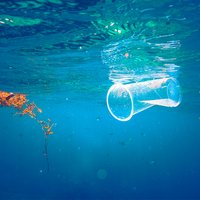Plastic Mythbusters
Myths and facts about plastic: web quiz opens up a playful approach

Myths and facts about plastic: web quiz opens up a playful approach

Plastic pollution is a global problem. Every year millions of tonnes of plastic waste leak into aquatic ecosystems, polluting lakes, rivers and seas. Plastic pollution can alter habitats and natural processes, reducing ecosystems’ ability to adapt to climate change, directly affecting millions of people's livelihoods, food production capabilities and social well-being. Plastic Mythbusters is a quiz which fact-checks popular myths and misconceptions concerning plastic pollution in the environment.
Against this backdrop, researchers from the Helmholtz Center Hereon are working with international partners to provide additional scientific fact checks and background information on the topic – including a new quiz: Plastic Mythbusters aims at catalysing wider discussions of popular plastics-related myths which regularly feature in media, public and policy discussions about the topic. Prof. Dr. Henning Wilts, Director of the Circular Economy Research Division at the Wuppertal Institute, also contributed to the quiz with a fact check on plastic recycling: "Recycling is an important part of the circular economy for plastics. At the moment, however, plastic waste is still predominantly landfilled or incinerated – as in Germany, for example. We will not be able to recycle our way out of these problems in the future either, which is why a fundamental transformation of the plastics value chain is needed," Wilts emphasises.
The Plastic Mythbusters web quiz opens up a playful approach: visitors can use the tool to test their knowledge about plastics. Which statements that circulate in the media and in public discourse are really true? Which are uncertain or lack any scientific basis? The quiz is based on a crowd-sourced collection of facts and myths that plastic experts compiled via social media. For example, is it a fact or a myth that we all eat microplastics weighing the equivalent of a credit card every week? Experts conclude that this claim is not true and misrepresents the state of scientific research. They say the fact that some amount of microplastic enters the body is indisputable, but the amount is unclear. Other studies assume that humans consume less than the equivalent of one grain of salt per week.
